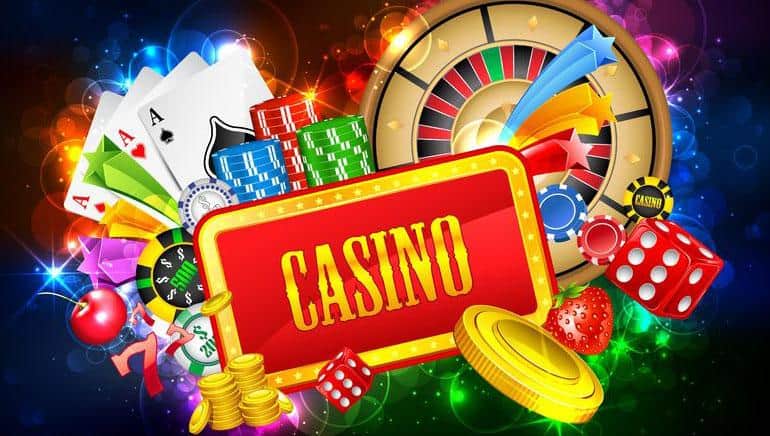
Upon entering into the the vibrant universe of betting establishments, visitors are often greeted by a whirlwind of excitement and energy. Ranging from the twirling roulette game to the dealing of deck in the popular card game, the atmosphere is charged. Nonetheless, for many newcomers, navigating through the various games of chance can be daunting. Grasping the unique language used in these games is key for improving your time and making wise decisions at the gaming tables.
Games of chance come with their own distinct set of jargon that can be both fascinating and, at times, intimidating. Understanding terms like "bankroll," "profitable," or "house edge" can significantly improve your strategies and allow for a more enjoyable experience. This resource seeks to clarify the language of gambling games, helping both beginners and veteran players become more at home in the exhilarating world of gambling. Whether you are looking to take a chance at a slot game or challenge yourself at a poker table, learning with the jargon will undoubtedly be beneficial.
Frequent Casino Terminology
When navigating the realm of casino activities, a clear understanding of the terminology can improve your experience and boost your gameplay. One of the commonly used phrases is "house edge," which denotes the statistical advantage that a gambling house has over the players. betflik This edge makes sure that, over time, the casino will consistently make a gain from the wagers. It changes by type of game; for instance, slot machines generally have a higher house edge in comparison to games like 21 or poker, where skill can lower the house’s profitability.
Another essential definition is "betting limit." This indicates the smallest and maximum amounts that players can stake on a particular activity or table. Betting limits are designed to ensure that gambling remains fun and keeping the affordability of all gamblers. Understanding the betting limits is essential for gamblers to manage their bankroll effectively. Regardless of whether you are a high roller or favor smaller wagers, knowing the caps can affect your approach and overall satisfaction.
In conclusion, the term "payout" is crucial when discussing casino games. Return refers to the sum a gambler can expect to receive when winning a wager, often expressed as a ratio or percentage of the initial wager. Different games have varied payout structures, and learning how they work can help gamblers in choosing smartly about where to place their bets. It is important to seek activities with advantageous payouts to maximize chances of winning while relishing the thrill of the casino atmosphere.
Game-Specific Jargon
Every gambling game has a distinct collection of terms which participants employ for discuss strategies, outcomes, and play features. For example, within the game of blackjack, the phrase "bust" signifies a player exceeding a sum of 21, resulting in an immediate loss. Players often utilize phrases like "hit" as they ask for another card and "stand" as they decide to maintain their present hand. Grasping these phrases is important for novice participants to manage the game effectively and participate in discussions with more experienced players.
Within the game of poker, you will face jargon which may be quite specific to the variation in play. Terms such as "flop," "turn," and "river" denote the community cards dealt in the Texas Hold’em variant. A "bluff" refers to deceiving rivals regarding the power of one’s hand, while "all-in" refers to a player betting their entire stack of tokens. Understanding these phrases is crucial to engaging in the game and provides players an edge in terms of strategy and betting dynamics.
Slot games, although simpler than traditional games, contain their terminology as well. Phrases like "payline" and "reels" refer to the basic features of the game. A "jackpot" indicates the maximum payout a player can receive, usually achieved through a unique combination of symbols. Players may also refer to "bonus rounds" as special features in the game capable of enhance winnings or provide extra gameplay chances. Familiarity with this language can boost the enjoyment and comprehension of slot machines.
Betting and Winnings Terminology
Grasping the language related to gambling and payouts is essential for mastering gambling activities. Gambling refers to the act of placing a wager on the result of a game. Each game has its own least and highest stake amounts, which can differ greatly depending on the casino and kind of activity. Understanding these limits can help players control their bankroll effectively and choose games that match their gambling approach.
Payouts are what gamblers receive when they win a bet, and understanding the payout structure is vital for making informed gambling decisions. Different gambling games have varying payout rates, often expressed in units of odds or percentages. For example, slot machines may offer fixed winnings, while table games like 21 might have more complex reward systems based on the type of wagers made. Getting accustomed with these systems can improve the gambling journey and plan for best results.
Terms like casino advantage and RTP also are important in the comprehension of payouts in casino games. The casino advantage represents the house’s inherent edge over gamblers, influencing overall winning chances. On the other hand, return to player, often abbreviated as Return to Player, indicates the percentage of bet money that a game is designed to pay back to gamblers over time. These ideas help gamblers make better choices about where to put their wagers and understand the odds they are facing.
